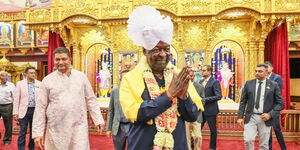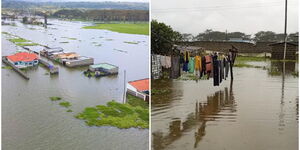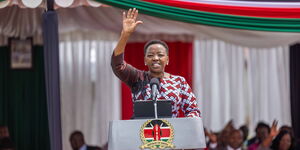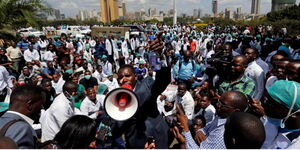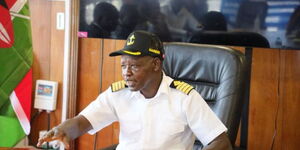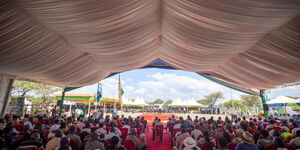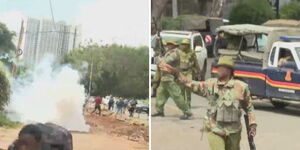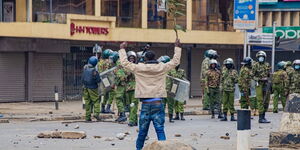President William Ruto on Sunday, May 7, hailed the warring parties in the ongoing Sudan war for agreeing to engage in peace talks.
In a statement, the Head of State acknowledged that the steps taken by the two warring factions will not only help them find solutions to the civil conflict but also reach a peaceful resolution under the mediation of the United States and Saudi Arabia.
The talks, which were underway in Jeddah, Saudi Arabia, had been hosting both the Sudanese army and the paramilitary group Rapid Support Forces (RSF) after the two factions agreed to a ceasefire.
The Head of State noted that the country should be working towards the establishment of democratic systems of governance that will propel the country into prosperity.
"Kenya welcomes the talks in Jeddah between the warring factions in Sudan facilitated by Saudi Arabia and the USA.
"We urge the sides to commit to making this engagement successful and a step towards ending the conflict and the destruction it has brought on Sudan and its people," Ruto briefed.
Further, Ruto asked the Sudanese army and the paramilitary group Rapid Support Forces (RSF) Generals to consider a face-to-face meeting in which they will agree on how humanitarian aid would safely reach affected areas.
"We join the people of Sudan, the region and peace-loving citizens of the world for measures to fast-track access to humanitarian aid, guaranteed civilian safety and safe passage across Sudan for all, especially aid workers.
"We hope this marks the return of Sudan to democracy and normalcy," President Ruto stated.
The conflict, which was spread over a period of three weeks, left behind hundreds of both civilian and military deaths as well as thousands of injuries as the Sudanese army and the RSF engaged in a power struggle over who gets to run the resource-rich nation of Sudan.
On April 15, RSF took control of the presidential palace, the state TV station, the residence of the army chief and Khartoum International Airport, as a result, an all-out war broke out.
Sudan had previously experienced several conflicts throughout its history, but one of the most recent and ongoing conflicts is the one in the Darfur region, which began in 2003.
The conflict involved several rebel groups fighting against the Sudanese government, which is accused of oppressing and neglecting the region's non-Arab population.
As a result, there was widespread violence, displacement, and human rights abuses. According to the United Nations, the conflict claimed the lives of over 300,000 people and displaced millions.
at the time, the Sudanese government was accused of arming and supporting Arab militias known as the Janjaweed (currently referred to as Rapid Support Forces), who had been accused of carrying out atrocities against non-Arab populations in the region.
The conflict had been characterized by human rights abuses such as rape, torture, and extrajudicial killings. Efforts to end the conflict had been ongoing, with the Sudanese government and several rebel groups signing several peace agreements over the years.
However, violence and conflict continued to persist in the region despite the separation between Sudan and South Sudan which is majorly made up of Black Africans.
Sudan also experienced conflict in other regions, including the Blue Nile and South Kordofan states, where rebel groups had been fighting against the government since 2011.

